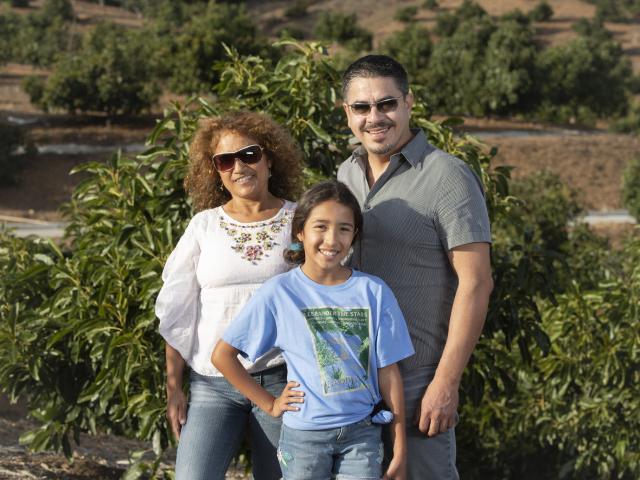
Effective Parenting Without Punishment
Parenting is undoubtedly one of the most challenging yet rewarding roles in life. As parents, we want the best for our children, and part of that journey involves teaching them right from wrong and helping them develop into responsible, compassionate individuals. Traditionally, discipline has often been associated with punishment, but there is a more effective and compassionate approach: Positive Discipline. In this blog post, we will explore the concept of Positive Discipline and how it can help you become a more effective parent without resorting to punitive measures.
What is Positive Discipline?
Positive Discipline is a parenting approach rooted in mutual respect, communication, and empathy. It is based on the belief that children learn best when they feel valued, understood, and connected to their parents or caregivers. Instead of relying on punishment, Positive Discipline focuses on teaching children important life skills, problem-solving, and responsibility. It encourages parents to build strong, positive relationships with their children while guiding them toward making responsible choices.
Key Principles of Positive Discipline
- Connection before Correction: The foundation of Positive Discipline is a strong emotional connection between parent and child. When children feel connected and loved, they are more likely to cooperate and listen.
- Firm but Kind: Positive Discipline doesn’t mean permissiveness. It involves setting clear boundaries and expectations but doing so with kindness and empathy.
- Teaching, not Punishing: Rather than punishing children for their mistakes, Positive Discipline seeks to teach them valuable lessons and problem-solving skills.
- Respect and Empathy: It’s important to treat children with the same respect and empathy that we expect from them. Understanding their perspective helps build trust.
- Encouraging Responsibility: Positive Discipline encourages children to take responsibility for their actions and the consequences that follow.

Effective Positive Discipline Techniques
- Active Listening: To understand your child’s perspective and feelings, practice active listening. This means giving them your full attention, maintaining eye contact, and empathizing with their emotions. When children feel heard, they are more likely to cooperate.
- Use “I” Statements: When addressing misbehavior, use “I” statements to express your feelings and concerns without blaming or accusing. For example, “I feel worried when you don’t do your homework” instead of “You never do your homework.”
- Set Clear Expectations: Children thrive on predictability. Clearly communicate your expectations and consequences for certain behaviors. This helps them understand the boundaries and consequences of their actions.
- Natural Consequences: Allow children to experience the natural consequences of their actions whenever possible. For instance, if they forget their raincoat on a rainy day, let them get wet. This helps them learn from their mistakes.
- Logical Consequences: When natural consequences aren’t safe or practical, use logical consequences. These should be related to the misbehavior and reasonable in scope. For instance, if a child refuses to clean up their toys, they lose playtime until it’s done.
- Time-In: Instead of time-outs, which can isolate children, consider using a time-in. This involves spending time together to discuss what went wrong and how to make better choices in the future.
- Positive Reinforcement: Praise and reward good behavior. When children receive positive feedback for their actions, they are more likely to repeat them.
- Problem-Solving Together: Engage your child in problem-solving discussions when conflicts arise. Encourage them to come up with solutions and discuss the potential outcomes of each choice.
Benefits of Positive Discipline
- Stronger Parent-Child Bond: Positive Discipline fosters a deeper emotional connection between parents and children, leading to trust and open communication.
- Improved Behavior: By teaching children self-control, problem-solving, and responsibility, Positive Discipline helps improve behavior in the long run.
- Enhanced Problem-Solving Skills: Children raised with Positive Discipline become adept at resolving conflicts and making responsible choices as they grow older.
- Increased Self-Esteem: Positive Discipline boosts children’s self-esteem and self-confidence, as they learn that their feelings and opinions are valued.
- Long-Term Positive Outcomes: Children who experience Positive Discipline are more likely to exhibit prosocial behaviors, perform well academically, and have healthier relationships as adults.
Conclusion
Positive Discipline offers a compassionate and effective approach to parenting that focuses on teaching rather than punishing. By fostering strong connections, setting clear expectations, and using empathy and respect, parents can guide their children toward becoming responsible, respectful individuals. Remember that Positive Discipline is not about being perfect but about striving for a better parent-child relationship built on understanding and communication. It’s a journey that leads to more harmonious households and helps children grow into capable, compassionate adults. So, let’s embrace the power of Positive Discipline and create a brighter future for our children. If you found this article interesting about parenting, it is very likely you will enjoy further reading at BibleKeeper.com.




